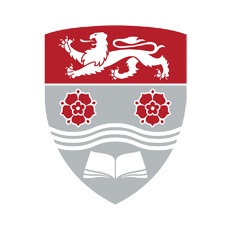fees waived
Earth and Environmental Science, BSc (Hons), with industry placement
Lancaster University, United Kingdom
Subject ranking
UK / USNews 4th
UK / ARWU 5th
UK / The Times 7th
Costs
food & rentS$16.8K / year
Entry requirements
Scholarships
Limited quantity
Limited quantity
Limited quantity
Information
Code
Intakes
Programmes
Information
Duration
2028
Geoscientists are increasingly recognised as playing a crucial role in meeting global challenges such as climate change, sustainable development, resource provision, and natural hazards. By placing your geoscience training within the broader context of the environment, you will gain knowledge of both the challenges and the potential solutions.Within your degree, you will consider both natural and man-made environments, to explore the main factors and processes that control today’s environment, how the environment has evolved to its current state and how environmental conditions may change in the future.In addition, your degree will draw upon the expertise of a number of our staff who specialise in Earth science including volcanology, geophysics, hydrogeology and glaciology, who deliver an exciting range of specialist topics to choose from.Your first year will address many of the fundamental themes of the Earth and environmental sciences, from understanding geology to learning about the atmosphere, weather and climate. Specialisation begins in the second year when we introduce Earth science-focused topics, and this degree gives you the flexibility to focus on a specific topic area, for example, geological hazards, soil science, environmental radioactivity or glacial systems.In your second year, core modules will prepare you for your third year dissertation project, which is an opportunity to research a subject that really interests you. You may choose a project with a substantial fieldwork component or, alternatively, conduct laboratory-based research or computer modelling.To prepare you for your work placement year, our Careers and Placements Team will provide advice and guidance on: the skills required to create effective CVs, cover letters and applications; tips and techniques on how to make an impact at interviews and assessment centres; how to create a relevant digital profile; and how to research employers and career sectors of interest. In addition, there is great emphasis placed upon developing self-awareness and on how to present yourself in a professional manner to employers. This optional provision will be delivered via a blend of traditional and digital methods including face-to-face workshops, online webinars, e-courses and 1:1 appointments.You will spend your third year on placement, which may be in a science or non-science position. The placement offers you the opportunity to work as a full-time employee of the organisation whilst still receiving both academic and pastoral support from Lancaster University.The University will use all reasonable effort to support you to find a suitable placement for your studies. While a placement role may not be available in a field or organisation that is directly related to your academic studies or career aspirations, all placement roles offer valuable experience of working at a graduate level and gaining a range of professional skills. If you are unsuccessful in securing a suitable placement for your third year, you will be able to transfer to the equivalent non-placement degree scheme and continue with your studies at Lancaster, finishing your degree after your third year.For your second and third year, modules will build upon the themes from year one, and you will have the opportunity to take part in popular field courses, including to Mount Etna in Sicily. There, you will study volcanic processes and learn how the local population can manage the impacts of volcanic phenomena. You will also have the opportunity to engage in fieldwork at Carrock Fell in the scenic Lake District World Heritage Site and take further optional residential modules, from studying glacial processes in Switzerland to environmental challenges in Croatia.
A local representative of Lancaster University in Singapore is available online to assist you with enquiries about this course.

